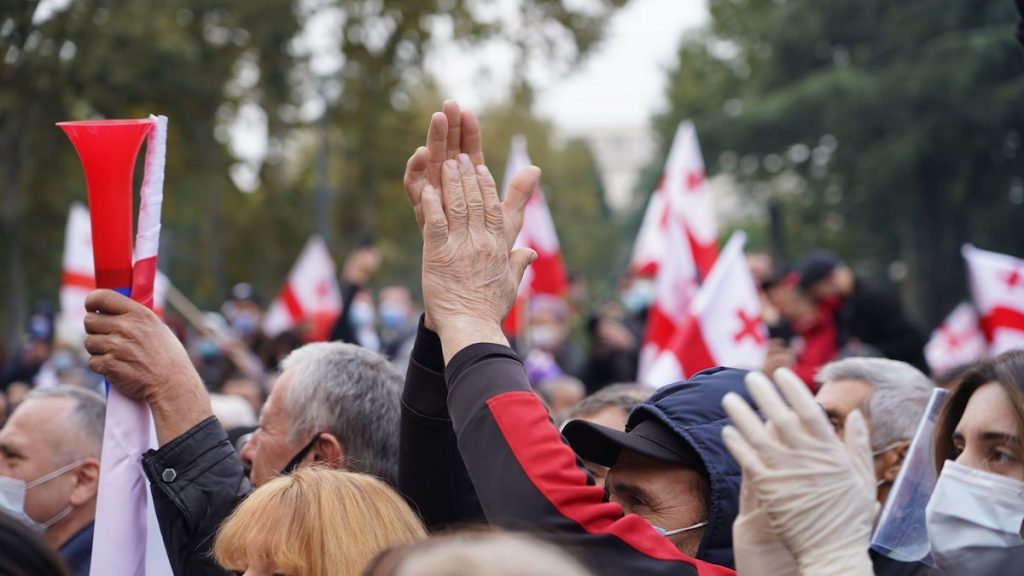Op-ed: can the mistakes of the Georgian opposition be corrected?
Tornike Sharashenidze, Ph.D. in International Relations and Professor at GIPA University in an interview with JAMnews about the political crisis in Georgia following the parliamentary elections on October 31, 2020.
The new parliament of the tenth convocation should meet in Georgia no later than 11 December. However, it is not yet known what this session will look, since the opposition does not recognize the election results, refuses to take its seats in parliament and is demanding repeat elections.
There is a dialogue between the opposition and the authorities with the participation of international mediators. So far, three meetings have already taken place, but so far to no avail.

Both the authorities and the opposition risk their future
“Both sides are taking great risks.
The opposition is risking its future by refusing to work in parliament. If the ruling party manages to create a government that can overcome the political and economic crisis, the opposition will lose public confidence and will be marginalized.
But the ruling Georgian Dream party is also risking its future.
If it alone is in parliament and is unable to cope with the crisis, then the Georgian Dream alone will be responsible for the consequences, which would be akin to burying itself, in the political sense.”
Good and bad scripts
“A good scenario would be for the opposition to enter parliament, for two main reasons:
- In 2021, there are elections to local government bodies in Georgia. If the opposition remains on the street, I don’t know how much it can count on winning this election.
- The next parliamentary elections, in 2024, will be held according to a fully proportional system. The Georgian Dream will practically have no chance of winning in those elections if the opposition is well prepared.
And the bad scenario: if no opposition party starts working in parliament and this leads to a large-scale political and economic crisis in the country.
Under this scenario, in four years the country may find itself in a state of catastrophic polarization, and the next parliamentary elections will resemble civil war.
True, there is one ‘but’ here: does the opposition have the resources to stand on the streets for these four years? After all, its only hope will be to wait for the ruling party to not cope with the crisis.
Therefore, I still think that the processes will follow the first scenario. And it is quite possible that now some of the opposition parties are looking for arguments to justify the refusal of the boycott and start working in parliament.”
- Georgia: can a single-party parliament function?
- Georgian street protests, negotiations running simultaneously. Photo report
Errors of the Georgian opposition, due to which the West did not support it
“The opposition must draw conclusions from its mistakes, which have led to the fact that it is now difficult for them to enlist the support of the West.
1.
The opposition made a serious mistake by declaring a boycott of parliament in the spring of 2020 and did not participate in the approval of constitutional amendments to the electoral code.
It was then that the opposition lost the PR battle in the West. It was not clear to the diplomats why they did not attend such important meetings. And in the end, Georgian Dream accepted these changes without them.
2.
Just a few hours after the closure of polling stations on October 31, when the appeal process had not yet been completed, the opposition had already begun loudly declaring that the elections were rigged.
It sounded rather frivolous.
3.
It is clear that the elections were bad. But how did it happen that the opposition representatives in the Central Election Commission signed the protocols? We can say that they were bribed, they did not understand the situation, or something else.
But why did the opposition choose such representatives? Not a single foreign partner can understand this.”


















